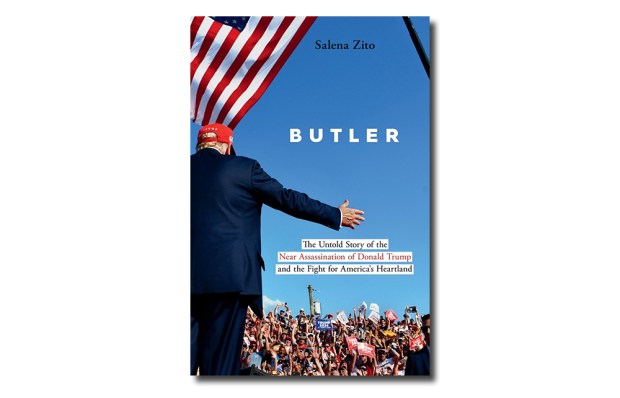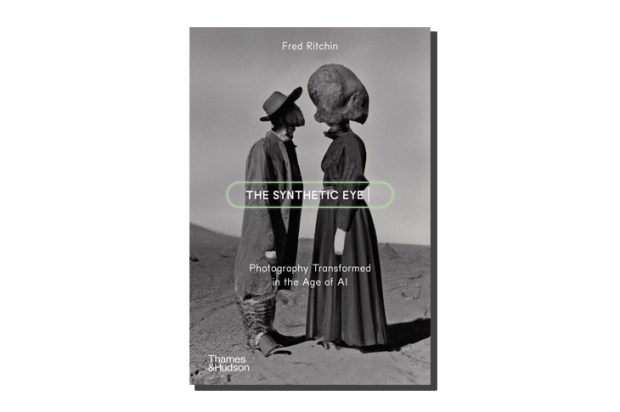Great news for admirers of entertaining and refreshingly honest thinking and writing about our world: a bonus volume by the late David Martin Jones and his partner in political incorrectness M.L.R. Smith.
The lot of an independently minded academic in this century has rarely been a happy one. Social psychologist Irving Janis coined the term ‘groupthink’ in 1971, consciously modelling it on the terms ‘newspeak’ and ‘doublethink’ that George Orwell introduced in 1984. Janis defined groupthink as a ‘non-deliberate suppression of critical thought as a result of internalization of the group’s norms’. Universities have become epicentres of groupthink. But there are brave exceptions, who shine all the more clearly. Among them is my friend David Martin Jones, who killed himself in London in 2024, and his frequent writing partner Michael Rainsborough, who uses the pen name M.L.R. Smith.Quadrant editor Rebecca Weisser and David Lloyd Dusenbury, a senior fellow at the Danube Institute where Martin Jones was during his final years research director, wrote appreciations of Martin Jones for this magazine.
Now, a year later, Smith has delivered a substantial, 272-page book of final joint essays, written by the pair over the previous five years, published by the Bruges Group.
Martin Jones’ widow Jo Cohen Jones – the step-daughter of the conservative philosopher Kenneth Minogue – has written a foreword to the new book, saying ‘world events have, tragically, evolved to validate much of Mike and David’s work’, thus transcending the ‘rhetoric of silence’ from the ‘Academafia’. She notes that, ‘David’s passionate nature didn’t do well with marginalisation…. Whilst cancellation was not responsible for his actual death, those who protest too much about the exclusion and inequalities in our society would do well to examine their own avoidances.’
Martin Jones taught in tough inner-city London schools before working alongside Smith at the National University of Singapore in the early 1990s, then at Tasmania and Queensland Universities, and then again alongside Smith at King’s College, London.
Both had become targeted by Singapore’s Internal Security Department for helping the brilliant American economist Christopher Lingle escape after he had publicly questioned the independence of the Singapore judiciary. Smith writes that this happened just as an eirenic liberal world order was being hailed with ‘the end of history’ as proclaimed by Francis Fukuyama following the Cold War with the USSR.
He says: ‘We were intrigued why the depiction of South-east Asia as a zone of peace and harmony by the region’s political elites, endorsed uncritically by a wide array of Western scholars, seemed at variance with what we saw taking place on the ground.’ This led to their study of Western cultural nihilism, ‘the remorseless secularisation of Western societies’ that contributed to ‘the misplaced conformities and delusions that afflicted contemporary social science’ as it fled geopolitical realities that were most graphically underlined by Russia’s invasion of Ukraine.
The essays in this collection are the result of three decades of collaboration, heartened by others who are acknowledged, including some who have taken serious roles in shaping those geopolitical realities such as Professor John Bew, a very significant player in 10 Downing Street with leaders of both major parties there.
Smith stresses that they ‘never conceived our writings as part of some moral struggle between darkness and light. We only ever set out to speak the truth as we saw it’. A commendable if rare goal.
The essays are bracketed together under eight themes: the rise of Asia and the new front line of history, Western self-deceptions about the war on terror, the follies of now-academically pervasive critical theory and radicalisation studies, globalist myths, the West’s cultural revolution, history re-started, democracy and dystopia, and the endnote of history – Britain’s terminal decline?
As the centre of academic gravity shifted towards anti-capitalist critical theory and identity politics, Martin Jones and Smith maintained a strong thread of analysis that stressed values such as freedoms, openness, democracy and human rights. They took religious motivation seriously.
Thus for instance, the pair focused after 9/11 on determining the jihadists’ strategic intent by checking what they actually said they were doing, including by examining Islamist texts, thus explaining actions that were widely shrugged aside in the West by ‘unfalsifiable second order concerns like psychological problems, economic deprivation, and especially the self-lacerating assertion that Islamist-inspired violence was really all the West’s fault’.
An essay asks – rhetorically, there is no clear answer – how ‘the idea of a university as a project to advance knowledge and understanding through freedom of expression and viewpoint plurality’ should be held so equivocally by the very people who might be expected to be its strongest defenders.
And curiouser and curiouser, ‘to appease the rage’ of today’s ‘super-revolutionists’ in the tradition of Mao Zedong’s Red Guards, ‘public and private sector PR departments of many Western institutions uncritically accept the need to virtue signal their support of a movement that is, in theory, dedicated to their own destruction’.
We are seeing, the writers stress, ‘resurgent national identity and the recrudescenece of the sovereign state’ as geopolitical realities reimpose themselves in the shape of the three ‘permanent institutions’ of diplomacy, alliances and war, in the face of wishful-thinking borderlessness, utopianism and ‘grand transformative schemes’.
They submitted to a journal specialising in diplomacy, an article that critiqued the contemporary academic orthodoxy around the statecraft of Gough Whitlam, who ‘had been elevated to secular sainthood by the scholarocracy’. In it they pointed out that he kowtowed to communist China, ‘thus alienating just about all of Australia’s neighbours in south-east Asia’, he ‘cosied up to the Soviet Union, recognising the de jure incorporation of the Baltic states into the USSR’, and ‘acquiesced to the Indonesian invasion of East Timor with all the tragic consequences’. This was ‘a shameful legacy’. The article, unsurprisingly, went unpublished.
This tumultuous book of essays rudely interrupts that rhetoric of silence.
Got something to add? Join the discussion and comment below.
You might disagree with half of it, but you’ll enjoy reading all of it. Try your first month for free, then just $2 a week for the remainder of your first year.













